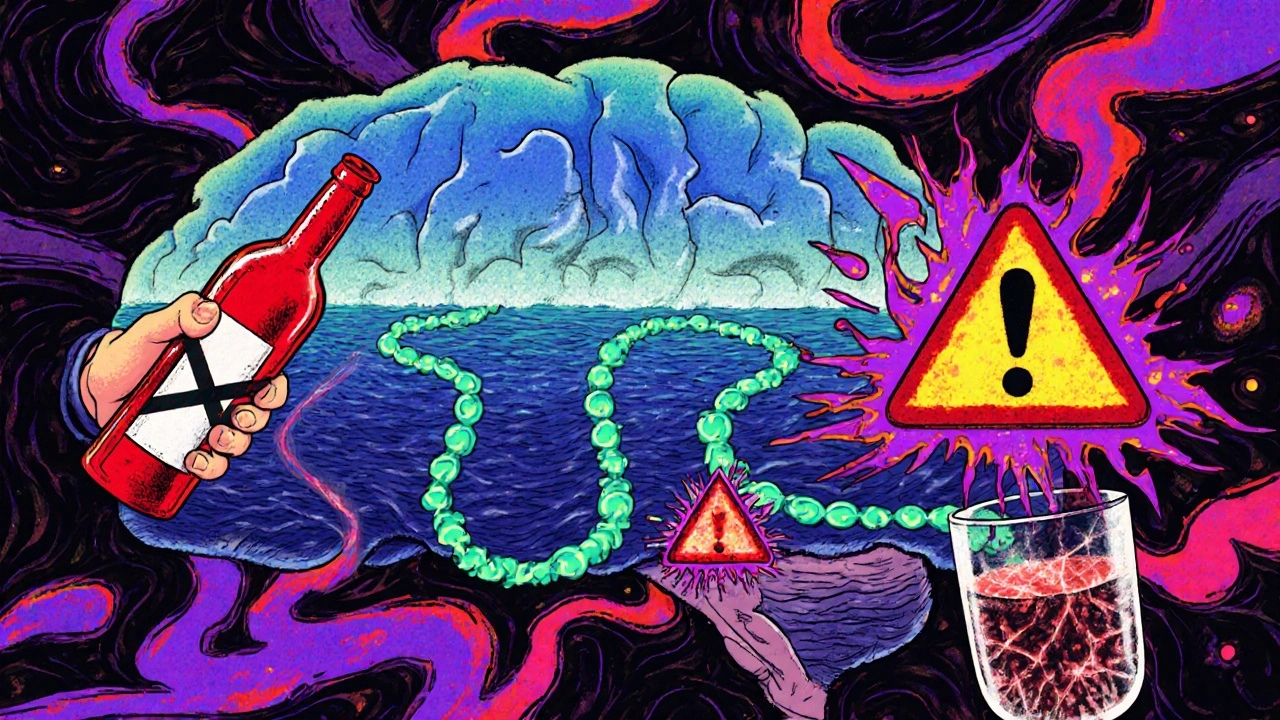Acamprosate: What It Is, How It Works, and What Alternatives Exist
When someone stops drinking alcohol, the brain struggles to rebalance itself — and that’s where acamprosate, a prescription medication used to help maintain abstinence in people recovering from alcohol dependence. Also known as Campral, it doesn’t reduce cravings right away, but it helps calm the brain’s chemistry over time so you’re less likely to relapse. Unlike drugs that make you sick if you drink, acamprosate doesn’t punish you — it supports you. It works by targeting the glutamate and GABA systems, two key brain chemicals thrown out of balance by long-term alcohol use. This isn’t a quick fix. It’s a steady tool for rebuilding stability after detox.
Acamprosate is often used alongside counseling and support groups, but it’s not the only option. naltrexone, a medication that blocks the pleasurable effects of alcohol, works differently — it reduces the urge to drink by dulling the reward response. Then there’s disulfiram, a drug that causes unpleasant reactions if alcohol is consumed, which some people use as a deterrent. Each has pros and cons. Acamprosate is gentle, works best for people who’ve already stopped drinking, and has few serious side effects. Naltrexone can help with cravings but may cause nausea. Disulfiram requires strict discipline. The right choice depends on your history, lifestyle, and what kind of support you have.
People using acamprosate often report feeling less anxious and more in control after a few weeks. It’s not a magic pill, but for many, it’s the missing piece in recovery. If you’ve tried quitting before and ended up back at square one, acamprosate might be worth talking to your doctor about — especially if you’re dealing with lingering brain fog, irritability, or sleep issues after stopping alcohol. It’s not for everyone, but for those who fit the profile, it can make a real difference in staying sober long-term.
The posts below cover real cases, comparisons, and practical insights about medications used in addiction and mental health recovery. You’ll find detailed looks at how acamprosate stacks up against other treatments, what side effects to watch for, and how lifestyle changes can boost its effectiveness. Whether you’re considering this for yourself or someone you care about, these guides give you the facts without the fluff.
Medications for Alcohol Use Disorder: How They Reduce Relapse Risk - and When They Don’t
Medications for alcohol use disorder can reduce relapse risk - but only if chosen correctly and taken consistently. Learn how naltrexone, acamprosate, and disulfiram work, who they help most, and why so many people stop taking them.
